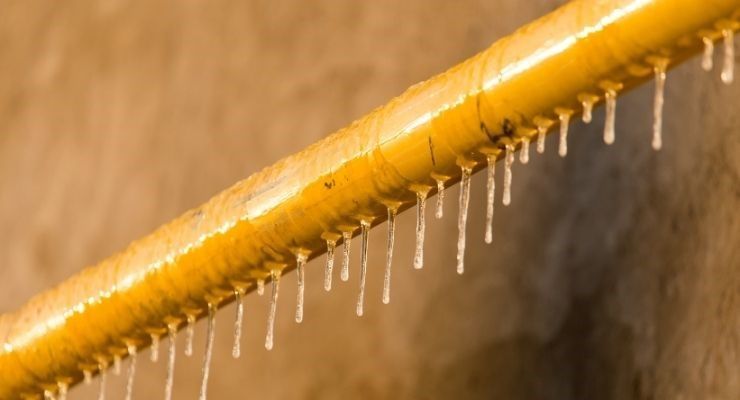
Winter is here, and it’s not backing down anytime soon. The cold weather can be a threat to your home’s safety for a plethora of reasons, but especially to your pipes. When pipes freeze, the results can be devastating. Investigate this frozen pipe guide and learn what to do if your pipes freeze.
Identifying frozen pipes
If you suspect your pipes are frozen or beginning to freeze, you can check for a few telltale signs. These signs don’t automatically mean your pipes are frozen, but they do indicate something may be wrong:
- Your faucets or drains smell bizarre.
- Your water pressure is drastically lower than normal, or no water comes out of the faucet at all.
- Your pipes have visible frost on them.
- Your water is coming out at the wrong temperature or doesn’t get warm.
What to do if your pipes are frozen
When you determine your pipes are frozen, there are some steps to take to minimize damage and danger within your home. The two main symptoms of frozen pipes are a lack of reliable running water and the potential for the pipe to burst. Follow the steps below, or contact a professional company:
- Keep the faucets open to let water and steam pass through the pipes.
- Heat the frozen section of the pipe manually. (Avoid any flammable materials, and don’t leave the heating pipe unattended.)
If the frozen pipe is in an exterior wall, you may need to turn off your water and contact a professional right away. Always contact a professional if you’re struggling to identify the source of the problem.
If you cannot locate the frozen pipe but your water seems to indicate that frozen pipes are the problem, you could be dealing with a frozen or freezing sewer line. You should always take steps to prevent sewer lines from freezing, as it can create serious problems for your water.
Prevention methods
If you don’t yet have frozen pipes, your home could still potentially develop them. Preparation and prevention are the best methods for keeping your pipes safe. Always keep your heat on to at least 55 degrees, even if you’re away. Check out a few other tips to prevent your pipes from freezing:
- Drain water from outdoor fixtures such as swimming pools and hoses.
- Insulate around pipes.
- Open kitchen cabinets from time to time to allow warm air to flow through them.
- Ensure your doors and windows are keeping the cold out.
There’s a lot of methods for preventing and fixing frozen pipes. This frozen pipe guide is designed to help you decipher what to do if your pipes have frozen, but if you have questions or are concerned about your pipes, don’t hesitate to call a professional plumber to get to the root of the problem before your pipes burst.



